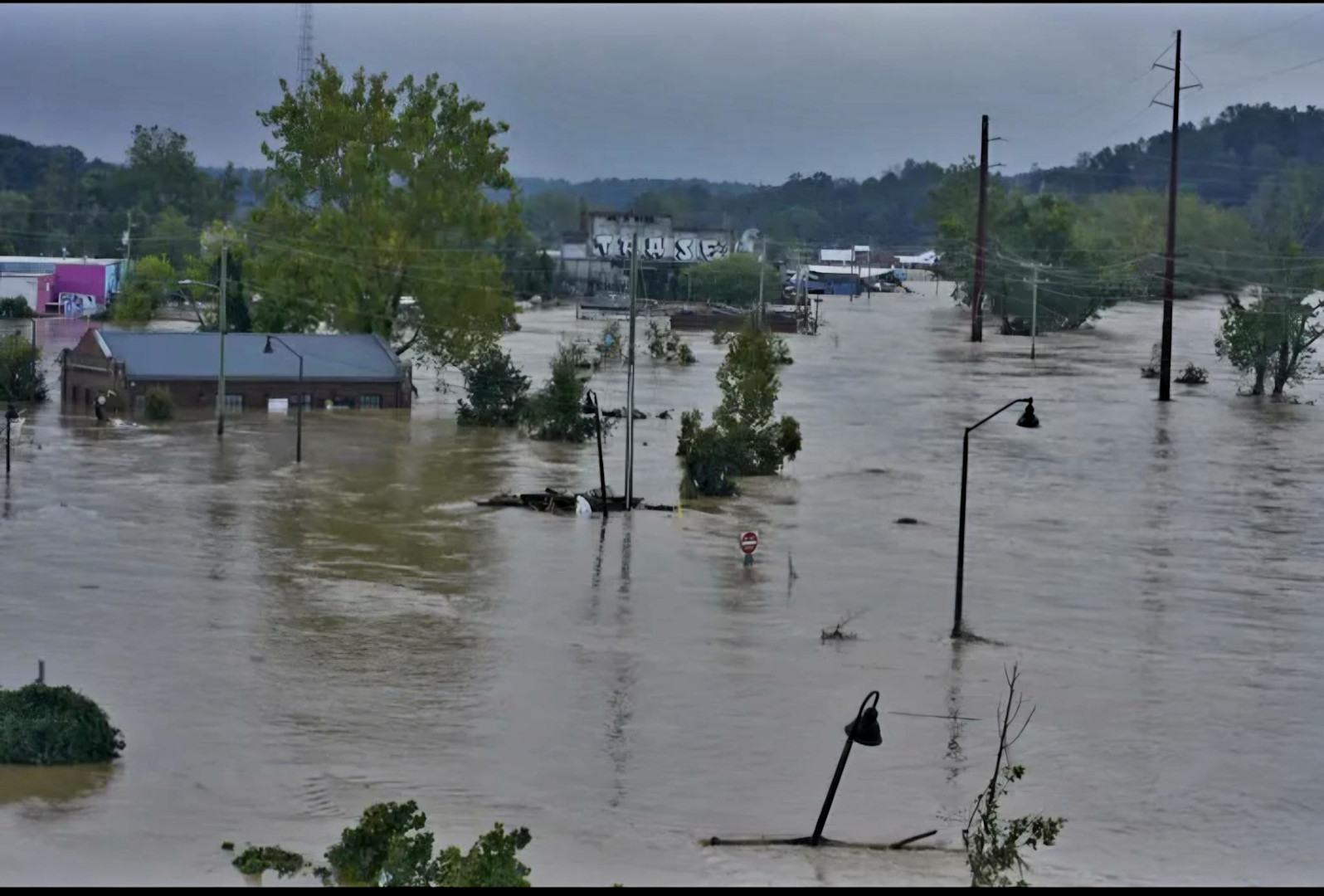Hurricane Helene
North Carolina

Stats and Progress
$13,668 / $25,000
Money Raised (USD)$11,333
Remaining to Goal55%
Percent Funded6,834
People ImpactedMake a Contribution
Gallery
Support This Program
In the wake of Hurricane Helene, which devastated parts of North Carolina, particularly the western regions near Asheville, access to clean and safe drinking water has become a critical issue. The storm caused widespread flooding, damaged infrastructure, and contaminated water sources, leaving thousands of residents without reliable access to potable water. The urgency of providing clean water to affected communities has prompted immediate action.
Waves for Water, in collaboration with local relief organizations and community leaders, has launched a disaster relief mission to bring clean water to the people of Asheville and surrounding areas. Using portable water filtration systems, we aim to restore access to safe drinking water for those impacted by the hurricane, particularly in remote and hard-to-reach areas where traditional infrastructure has been severely compromised.
Project Objectives
1) Provide Immediate Access to Clean Water
- Deploy portable water filtration systems to families, shelters, and community centers across Asheville and neighboring towns.
- Target areas where water sources have been compromised due to flooding or contamination, ensuring vulnerable populations have access to safe drinking water.
2) Train and Educate Communities
- Educate local residents on how to properly use the water filtration systems to ensure ongoing access to clean water.
- Conduct training sessions with community leaders and volunteers to expand the reach of the initiative and empower local groups to sustain clean water efforts post-relief.
3) Collaborate with Local Organizations
- Work closely with local authorities, disaster relief teams, and community organizations to identify high-priority areas for clean water distribution.
- Ensure coordination with other ongoing relief efforts to maximize impact and avoid duplication of resources.
4) Monitor and Assess Needs
- Establish a monitoring system to assess the ongoing needs of the communities and adjust our response as necessary.
- Gather data on water usage, community feedback, and any evolving challenges to refine the deployment of resources.
Implementation Plan
Phase 1: Rapid Deployment of Clean Water Filters (Weeks 1-2)
- Mobilize Waves for Water response teams to Asheville, equipped with 500 portable water filtration systems.
- Work with local partners to identify key distribution points such as schools, community centers, and shelters.
- Set up clean water stations in these locations and distribute personal water filters to families in need.
Phase 2: Community Training and Education (Weeks 3-4)
- Train local volunteers and community leaders on how to use the filters, maintaining the systems, and ensuring sustainable access to clean water.
- Launch educational campaigns on water safety and hygiene, emphasizing the importance of proper filtration to prevent waterborne diseases.
Phase 3: Continuous Support and Monitoring (Weeks 5-8)
- Continue to assess and respond to water access challenges in collaboration with local agencies.
- Conduct follow-up visits to ensure filtration systems are being used effectively and provide additional resources as necessary.
- Report progress to donors, stakeholders, and community partners.
Expected Outcomes
1) Over 12,500 residents of Asheville and surrounding areas will regain access to safe drinking water. 2) The local community will be equipped with the knowledge and tools to ensure ongoing water security. 3) Critical health issues related to waterborne diseases will be mitigated, reducing the strain on local healthcare systems during the recovery phase.
The water filtration systems provided during this mission are durable, with the capacity to filter up to one million gallons of water each. This ensures a long-term solution for clean water access even after immediate relief efforts have ended. By empowering local communities with the knowledge and resources to maintain these systems, the initiative fosters resilience and preparedness for future disasters.


